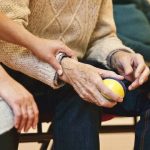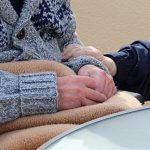The results of a six-year study by Georgetown University Medical Center revealed that nursing home costs are increasing across America, and quite rapidly. The future does not look so bright as far as nursing homes are concerned.
Dr. Sean Huang, the study’s lead author, said the brutal dynamic governing long-term care in the U.S.—where many nursing home residents must spend down the bulk of their life savings before qualifying for federal assistance—is intensifying. California, Florida, New York and Texas all saw increases that far outstripped the 11.6% rise in inflation from 2005 to 2010, the period reviewed by Georgetown’s analysis of eight states. Additional data show the upward trend has continued in the years since.
The baby boomers are not the only ones who should worry. Generation X, millennials and Generation Z might face an even darker old age. Rising wage pressure on a sector in need of workers is driving up costs, and unless Washington comes up with a fix, be it a version of “Medicare for All” or something less ambitious, the funding for some programs is projected to start running out in the next decade.
People with disabilities, dementia, Parkinson’s disease, etc., will use all of their wealth until it runs out because Medicare does not cover that.
The study suggests that we will not see any improvements in these trends, and if anything, things will probably get worse.
Many Americans have no idea how Medicare works, including those approaching retirement. Eligibility for the program, a sort-of government health insurance policy largely for older Americans, generally begins at age 65, covering some of the costs of routine and emergency medical care. What it doesn’t cover are most aspects of long-term “custodial” care—as in nursing homes, where a large portion of Americans can expect to spend the last years of their lives.
That’s where Medicaid—state-administered coverage for Americans whose assets fall below a certain level—comes in. For those who qualify for nursing home admission, Medicaid generally requires that they exhaust most of their assets before qualifying for coverage. Without expensive long-term care insurance, which most people don’t have, an increasing number of older Americans are doing this.
And their nest eggs are being depleted more quickly than ever. Huang’s study found nursing home price rises over the period measured generally outpaced increases in overall medical care (20.2%) and consumer prices (11.7%). For example, in California from 2002 to 2011, the median out-of-pocket cost for nursing home care increased 56.7%.
Huang and three co-authors began looking into the matter in 2013. With no central database, they had to collect information from each state as well as from individual nursing homes. Some states only had data through 2010, he said. In the end, they managed to crunch data from an average of 3,900 nursing homes for each of the years measured, representing approximately 27% of free-standing U.S. facilities.
Nursing homes in New York during the period reviewed had the highest average daily price, at $302, while Texas had the lowest average daily price, at $121. Additional information has shown that nursing home costs have continued to increase at a much higher rate than inflation, albeit slightly slower than during the study period.
In 2010 the average price per day for nursing home care in California was $217, up more than 30% (with Florida close behind) from 2005. In a more recent analysis, Huang calculated that from 2010 to 2015, nursing home prices in California rose more slowly, by roughly 19.6%, to $258 per day. However, inflation from 2010 to 2015 increased only 8.7%, he noted, adding that his research doesn’t point to any improvement going forward.
The median daily price for a private room in a California nursing home just last year was $323, while the national median was $275 per day, according to life insurance company Genworth. Looking at the issue from an annual perspective, the median cost in the U.S. for a private room in a nursing home was $100,375. Oklahoma provided the cheapest annual median cost, at $63,510, while Alaska was the most expensive at $330,873, Genworth data showed.
Nursing homes have long been a financial drain on most who need them, constituting one of the greatest risks retirees face when it comes to managing retirement funds, a report from the U.S. Department of Health and Human Services showed. Unfortunately, the annual costs for nursing home care will continue to grow at a rate much faster than inflation, according to Urban Institute Senior Fellow Richard W. Johnson.
More elderly Americans means more demand for nursing home care, and more demand for nursing home employees. Wages go up, and the cost is passed along to consumers.
In an industry that requires significant hands-on attention, technology can’t eliminate many jobs. And just when the labor market for nursing homes is already tight, uncertainty over U.S. immigration policies may further reduce the number of available workers, he said. In 2017 immigrants made up 23.5% of formal and nonformal long-term care sector workers, according to Health Affairs.
Home health aides and personal-care aides are ranked as the third- and fourth-fastest growing occupations and are expected to increase 47% and 39%, respectively, from 2016 to 2026, according to the Bureau of Labor Statistics.
Another trend that may be driving up costs is tied to Wall Street. Four out of the 10 largest for-profit nursing home chains were purchased by private equity firms from 2003 to 2008, according to a case study analyzing a private equity takeover.
Research on the impact of private equity has yielded mixed conclusions, though one study revealed how a nursing home chain that was taken over by a private equity firm showed a general reinforcement of profit-seeking strategies already in place, while adding some strategies aimed at improving efficiency. Other reports, however, have detailed darker results.
Some states have started taking matters into their own hands. Washington state passed a bill in April that would implement a 0.58% payroll tax that would give residents up to $36,500 to pay for long-term care services. Payroll tax will begin collecting in 2022, while residents can start withdrawing in 2025. But that’s just one state, and the problem, Huang and Johnson note, is national in scope.
The only way they see nursing home quality to improve is if there would be a higher reimbursement rate, either by Medicaid or Medicare, but that is unlikely to happen in the near future.
Paying for a Nursing Home Stay
There are essentially four main ways to pay for a nursing home stay:
- Cash out of your pocket
- Medicaid
- Private Long Term Care Insurance
- Medicare
What Does Medicaid Cover?
Medicaid is a joint federal and state government program that helps people with low income and little assets pay for their nursing home costs. As discussed in the article above, to be eligible for Medicaid, your income and asset levels can’t exceed levels set forth in your state. Medicaid officials will review your financial information over a certain number of years to determine if you have been getting rid of “wealth” in order to receive Medicaid. If you have assets over the allowable level, you are allowed to “spend down” or decrease your assets before you receive Medicaid. Typical spend down costs include medical expenses, mortgages and other debts, and funeral expenses. Also, your house and car are generally not counted against you for qualification purposes.
You should also keep in mind that not all nursing homes accept Medicaid, so you’ll need to ask about a particular nursing home’s policy. You can find nursing homes that accept Medicaid by clicking here.
What is private long term care insurance?
Private long term care insurance is an insurance policy that’s purchased separate from your primary medical insurance, sort of like buying life insurance. In simpler terms, the insurance coverage that covers your doctor’s appointments and prescriptions won’t cover nursing home stays. If you want a nursing home cost covered, you’ll have to purchase long term care coverage. Long term care insurance can be very costly and not all policies are the same, so it is important to thoroughly evaluate all policy information before purchasing it. You can find out more about this type of insurance by clicking here.
What does Medicare cover for nursing home stays?
Medicare helps pay for short stays of no more than 100 days in a nursing home for a few reasons:
- You were hospitalized recently for at least 3 days.
- You were admitted to a Medicare-certified nursing home within 30 days of your prior hospital stay.
- You need skilled nursing services.
The earlier you begin planning for the cost of nursing home care, the better chance you have of being able to afford it without causing you or your family a major financial hardship. No one wants to think about this kind of thing, but the reality is that the matter is getting worse, not better. We must think about these costs and plan, so that we can all have a better future with better nursing home care, if and when needed.
Continue reading
 A nursing home in Baker County that saw a sudden spike of 10 coronavirus cases said the illness was bought into the facility from someone who was recently moved to the facility.
A nursing home in Baker County that saw a sudden spike of 10 coronavirus cases said the illness was bought into the facility from someone who was recently moved to the facility. Florida Personal Injury Lawyers Blog
Florida Personal Injury Lawyers Blog




